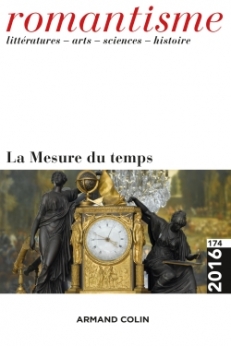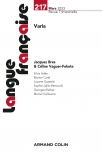
Romantisme n° 174 (4/2016)
Pour acheter ce numéro, contactez-nous
Recevez les numéros de l'année en cours et accédez à l'intégralité des articles en ligne.
Le XIXe siècle se concentre sur le travail envisagé comme un effort segmentable en quantums mesurables et rétribuables. Se pose alors la question de la légitimité du travail littéraire fourni hors du dispositif industriel, à domicile. Cette pression entraîne un double mouvement : la revendication du travail littéraire comme valeur et processus partiellement mécanique qui légitime sa rétribution et son insertion dans un régime médiatico-industriel, et la préservation de sa sacralité. Le rapport ambivalent de l’écrivain au travail nocturne, compromis entre le mesurable et le sacré, permet de mieux saisir la problématique psychologique et socio-économique dont l’écrivain moderne, de Balzac aux Goncourt en passant par Daudet, se trouve dépendant. Il permet aussi d’appréhender l’efficacité critique de la « chronométrie » du fait littéraire.
The 19th century looks at work as an effort susceptible of division into measurable segments, each of which can be remunerated. What then is the legitimacy of literary work, executed outside the industrial organisation, and at home ? There are two possible responses : the vindication of literary work as a value and as a process which is partly mechanical and can thus find its place within an industrial and media regime, and be legitimately remunerated, or the preservation of its sacred nature. Writers’ambivalent relationship to nocturnal work, a compromise between what is measurable ad what is sacred, is a way into the understanding of the psychological and socio-economic problematic all modern writers, from Balzac to the Goncourts through Daudet, are tied into. It also enables the evaluation of the critical efficacy of literary “chronometry”.

